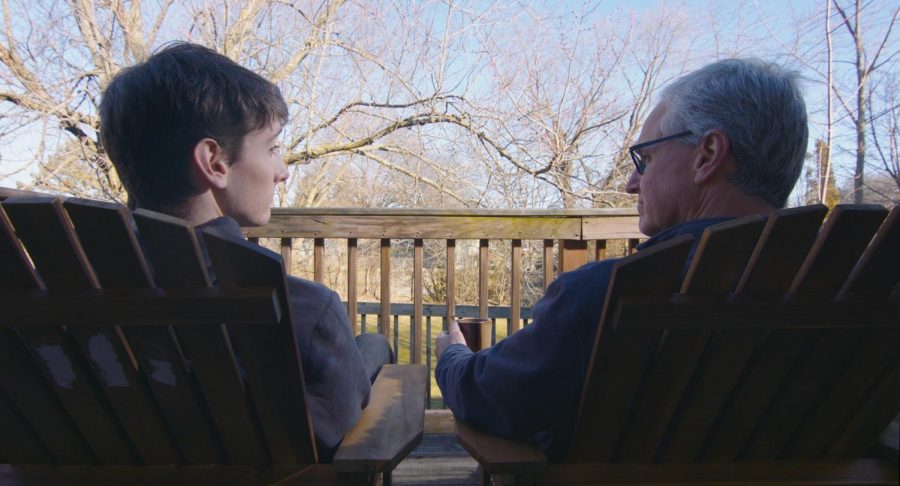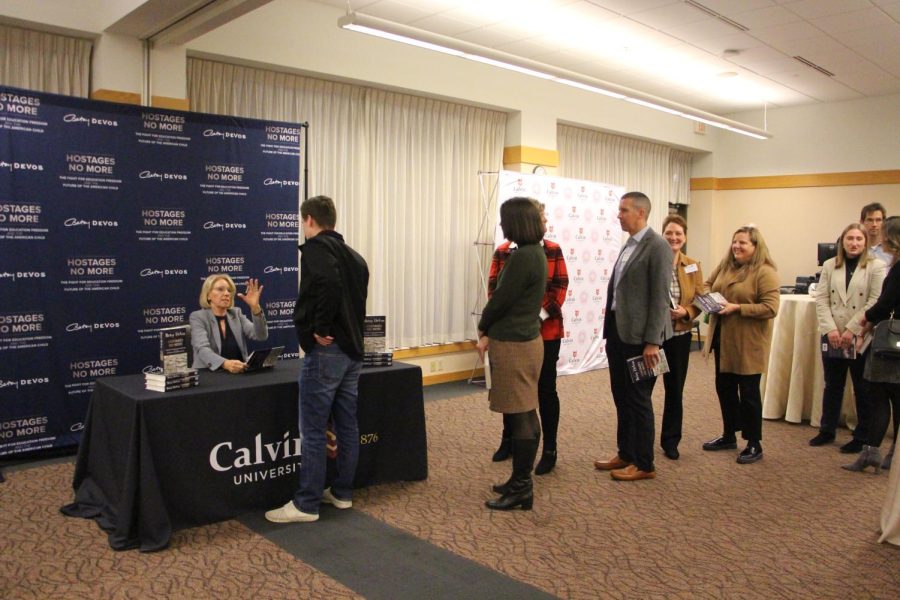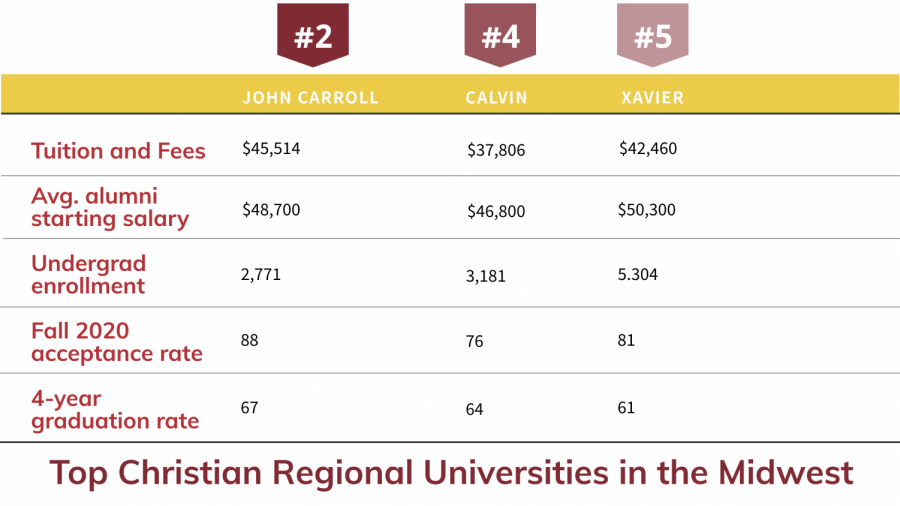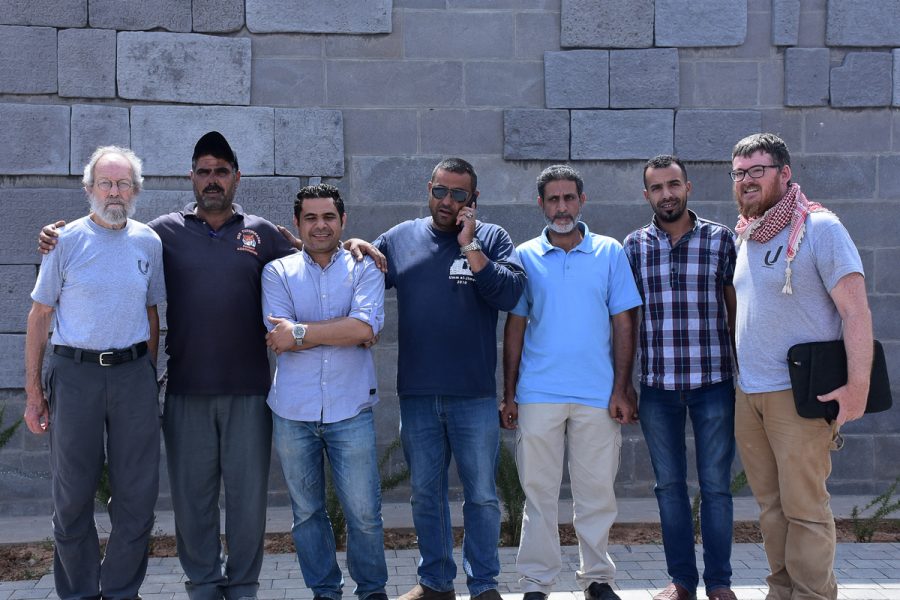Calvin College’s endowment fund is an important aspect of Calvin’s fundraising structure, but what exactly is it, and why is it so important?
Essentially, an endowment is a financial account from which only the interest generated is spent. “It sort of like your savings account,” explained Ken Erffmeyer, Calvin’s vice president for advancement:
“Say you put $1,000 in your savings account, but you only spend the interest off of that. You are never trying to dip into those thousand dollars. The returns give you the cash to use in a given year.”
Erffmeyer explained how the funds of the endowment are used. “Once you make that donation to the college, you don’t get that principle back,” he said. “That dollar amount is invested and 4.5 percent of that is taken and put into the operational budget.”
This means if someone were to make a donation of $100,000, it would generate $4,500 in interest to be used for a scholarship. The original $100,000 would stay in the account. Every consecutive year, the $100,000 would create another $4,500 dollars in interest to be used by the college.
Because this money is being generated from a gift already given, the endowment system allows for things to be paid for without pulling from students’ tuition money.
Unfortunately, Calvin’s endowment is significantly smaller than schools around the same size. “With the endowment being smaller, I would just say it puts us more at risk that we are so dependent on what our enrollment is,” explained Erffmeyer. “It puts a lot of pressure that we get the 4,000 students every year, because if we don’t get the 4,000 students, we don’t have a big enough endowment to keep everything we do today.”
The reason for Calvin’s smaller endowment dates back to its early days. “The reason for this,” said Erffmeyer, “is that really, until about the 1980s, between students’ tuition dollars and the Christian reformed ministry dollars, [the tuition and church support] really covered all of our budget.”
On top of the tuition and church donations, the community surrounding Calvin felt that fundraising was a sign of a weakness of faith. “Back in the early times, some people felt that if you went out and raised money, you were lessening your trust in God to provide,” said Erffmeyer.
That belief has long disappeared from the financial offices at Calvin College, not because they don’t trust God to provide, but because they see fundraising as an opportunity to grow his work.
They have been working hard to grow the endowment fund. “We have grown the endowment greatly since the early ‘90s, so we are on a good trajectory,” said Erffmeyer, “but we still have a lot of opportunity to grow that so we are competitive with our peer groups.”
One of the ways Erffmeyer’s team is working to generate donations involves finding aspects that Calvin donors are particularly excited about, such as need-based students, various departments, technology and campus improvements.
“With fundraising, I think the biggest thing is that we want to match the passion of the donor with a need at Calvin,” explained Erffmeyer. “What motivates our donors is that they want to help students and give them a good experience.”
Erffmeyer stressed that the relationships formed in these interactions are more about donors’ passions and involvement rather than simply the financial significance of the gifts.
“Sometimes with fundraising you get these perceptions that people are these ATM machines — you just go up to them and walk away with the check and we can sort of dictate how we use that, but it doesn’t work that way,” said Erffmeyer.
Erffmeyer explained that interested donors can sometimes “take about five to six personal visits in eight or nine months” to find an area they are passionate about to support. “It’s a real investment in relationships and time trying to find that passion for a donor,” said Erffmeyer.
And while the bigger donations are incredibly important to the well-being of Calvin College, giving any amount of money can significantly help Calvin.
Erffmeyer pointed out that it is not just the size of the donation that counts on paper. “Participation [is] very important because US News, World Report and other entities will evaluate the school just based on participation,” said Erffmeyer. “So, really, that $5 that a senior or young alumni can give makes a huge difference.”
Along with the participation, pledges and donations, one of the other important aspects of Calvin’s fundraising organization is the endowment fund.
The funds raised by the endowment and other fundraising endeavors are used for a variety of things, including scholarships and capital projects, which include renovations and additions to Calvin College. Some of the upcoming ideas can be seen in the master plan.
“I think it’s a brilliant master plan; I’m very excited about it,” said Erffmeyer. Some of the ideas include a new Commons, a new student life building, a library renovation, classroom renovations and finding significant space for the business department.
While it may be some time before these things come into play, Calvin’s financial team is working hard to find ways to improve the life of current Calvin students, use current funds wisely and continue to use their strategies of pairing donors with the parts of Calvin they care about.
“At the key, it’s really all about listening to the donor,” said Erffmeyer. “If we were talking for an hour, I’d be asking you questions to learn about you and at the end of the day you’ve done more talking than I have.”
Erffmeyer says that ultimately he wants the donor “to be more excited about making a gift to Calvin than we are about receiving.”








